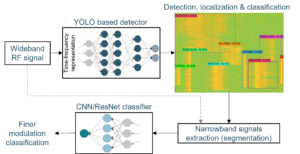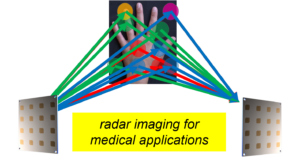
The application of machine learning, signal processing, and information theory methods to communication systems represents a promising avenue for enhancing communication performance. Our research extends beyond the mere application of these methods, encompassing a fundamental understanding and improvement of the methods themselves.
Machine Learning

The use of machine learning (ML) in communication systems enhances performance by enabling intelligent decision-making, such as adaptive resource allocation, interference management, and signal detection. As communication networks grow in complexity, further development of ML methods is critical for optimizing network efficiency, predicting user demand, and improving system reliability in real-time. By advancing ML algorithms, communication systems can become more adaptive and autonomous, paving the way for innovations like self-optimizing 6G networks and enhanced wireless communication technologies.
Signal Processing

Signal processing is a fundamental component of each communication system as it involves the analysis, manipulation, and interpretation of signals to ensure accurate data transmission and reception. Techniques such as filtering, modulation, and error correction are essential to improve signal quality, minimize noise, and optimize bandwidth utilization.
Post-Shannon Information Theory

Post-Shannon information theory extends traditional communication concepts to include semantic information and task-oriented communication, which emphasizes the importance of the meaning of a message, e.g., to accomplish a task, as opposed to pure syntactic information.
